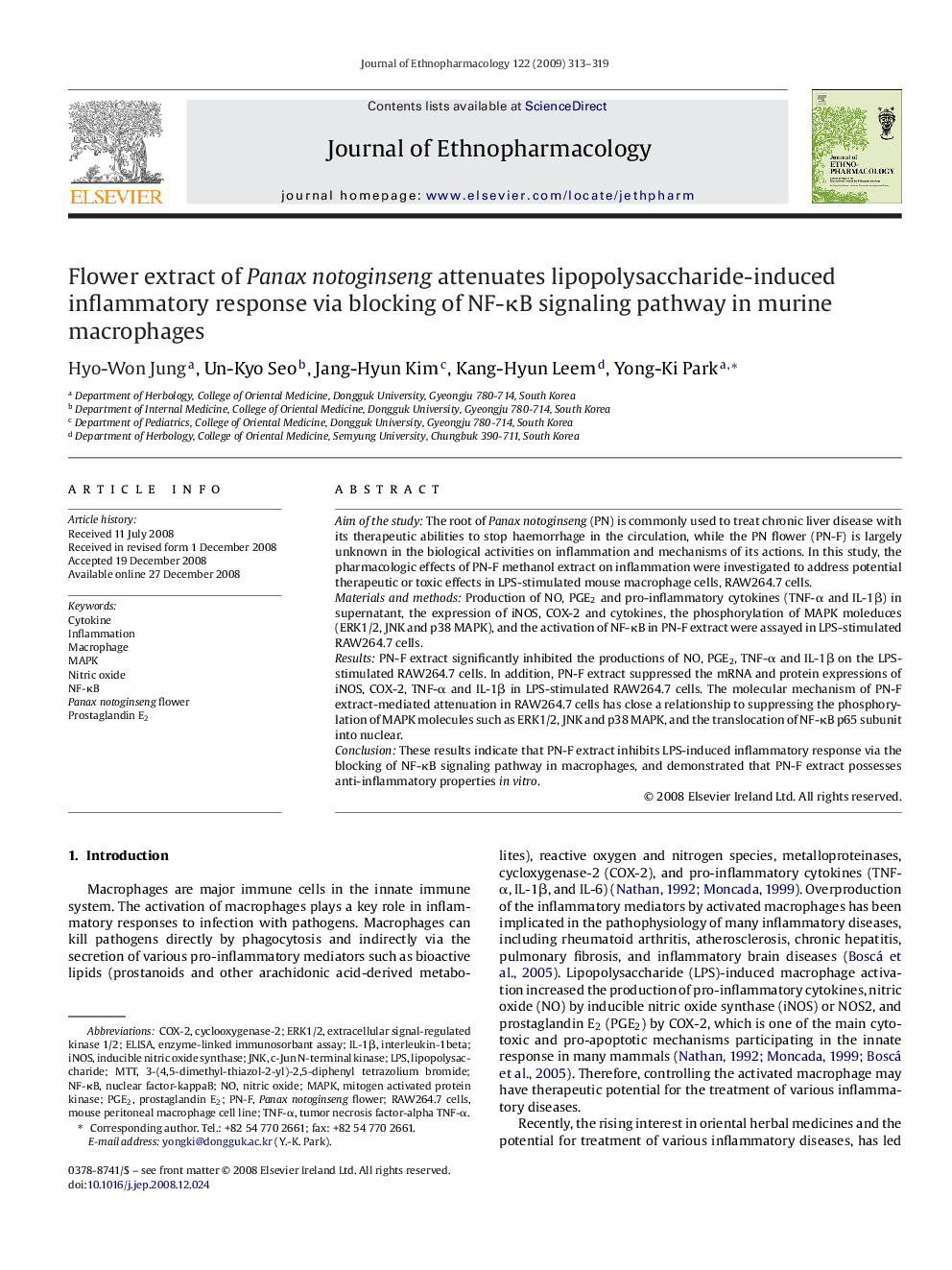| Article ID | Journal | Published Year | Pages | File Type |
|---|---|---|---|---|
| 2547013 | Journal of Ethnopharmacology | 2009 | 7 Pages |
Aim of the studyThe root of Panax notoginseng (PN) is commonly used to treat chronic liver disease with its therapeutic abilities to stop haemorrhage in the circulation, while the PN flower (PN-F) is largely unknown in the biological activities on inflammation and mechanisms of its actions. In this study, the pharmacologic effects of PN-F methanol extract on inflammation were investigated to address potential therapeutic or toxic effects in LPS-stimulated mouse macrophage cells, RAW264.7 cells.Materials and methodsProduction of NO, PGE2 and pro-inflammatory cytokines (TNF-α and IL-1β) in supernatant, the expression of iNOS, COX-2 and cytokines, the phosphorylation of MAPK moleduces (ERK1/2, JNK and p38 MAPK), and the activation of NF-κB in PN-F extract were assayed in LPS-stimulated RAW264.7 cells.ResultsPN-F extract significantly inhibited the productions of NO, PGE2, TNF-α and IL-1β on the LPS-stimulated RAW264.7 cells. In addition, PN-F extract suppressed the mRNA and protein expressions of iNOS, COX-2, TNF-α and IL-1β in LPS-stimulated RAW264.7 cells. The molecular mechanism of PN-F extract-mediated attenuation in RAW264.7 cells has close a relationship to suppressing the phosphorylation of MAPK molecules such as ERK1/2, JNK and p38 MAPK, and the translocation of NF-κB p65 subunit into nuclear.ConclusionThese results indicate that PN-F extract inhibits LPS-induced inflammatory response via the blocking of NF-κB signaling pathway in macrophages, and demonstrated that PN-F extract possesses anti-inflammatory properties in vitro.
